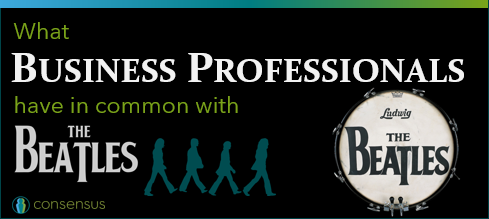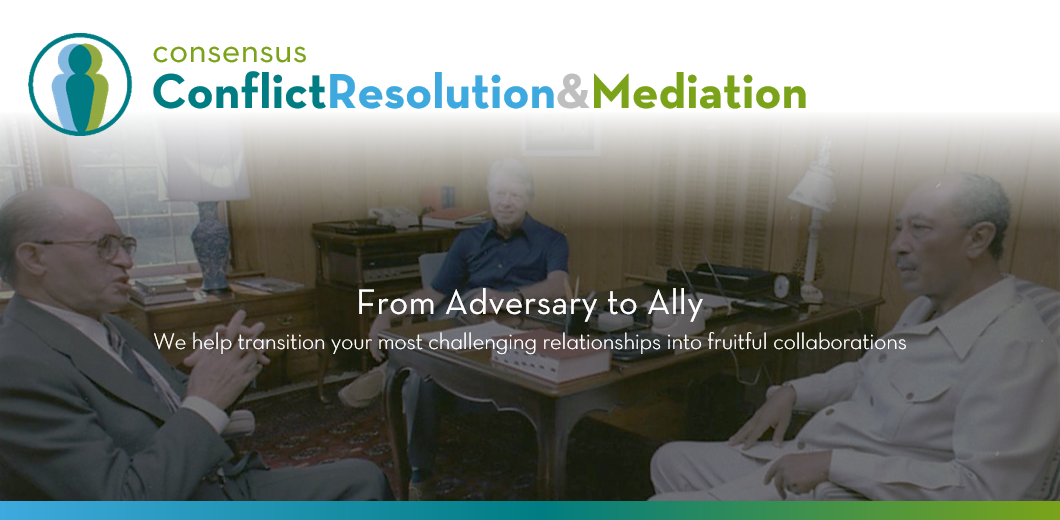What Business Professionals Have in the Common with the Beatles

What Business Professionals Have in Common with the Beatles
The collaboration between John Lennon and Paul McCartney of the Beatles is widely regarded as one of the most important creative partnerships of all time. The Beatles are one of the most commercially successful music acts of all time, and most of their hits are jointly credited to the duo. The Lennon-McCartney partnership is regarded as being among the most influential musical pairings of the 20th century. There is possibly no music duo that is more famous.
And yet they are now remembered not just for their collaborative work, but also for their explosive dissolution.
What Happened to the Beatles?
Lennon and McCartney were boyhood friends, having met when they were 16 and 15 years old, respectively. Yet, their creative and personal partnership frayed in the Beatles’ last years, and was publicly shattered when the band broke up. The dissolution was not simply emotional – it also meant the end of a profitable and prolific business partnership.
In the years following, the fighting between the two personalities was on public display through publicly traded insults, song lyrics, and speculation in the press. In 1980, when their relationship finally seemed to be on the mend, John Lennon was tragically murdered – there was to be no reconciliation nor future partnership between the two.
It’s difficult to quantify the cost of their damaged relationship. The world can only speculate what creative output might have been produced had McCartney and Lennon found a way to work together. While both had successful independent careers, the question of “What could have been?” still looms. Despite their individual successes, McCartney and Lennon (not to mention George Harrison and Ringo Starr) certainly missed out on potential windfalls had they been able to settle their differences.
The Beatles within Us
We often see business leaders follow a similar course. Over time, differences between colleagues escalate until they part ways. One partner can no longer envision a future with a fellow partner. Along the way, others become aware of the tensions at play, and some are pressed to choose a side. The folks reporting to one department head view a different department – headed by their boss’ nemesis – in a negative light. Productivity and efficiencies tank. And, opportunities for future windfalls are squandered.
The Options
Is there any way the Beatle’s breakup could have been avoided? Nobody knows conclusively. Clearly their situation was somewhat unique. However, they shared some universal relationship features, as well.
In most any relationship – business, familial, platonic, romantic, etc. – disagreement and conflict will surface at some point. Left unaddressed, issues can escalate, often to the point they cannot be ignored. And, some of those situations leave the parties feeling that the division is insurmountable. Those involved default to believing that their options are limited to:
• Accepting the status quo and the consequences. Almost always, this involves at least one party feeling unhappy, not trusting the other party, accepting mediocre outcomes (inefficiencies, etc.).
• Battling the other side. This involves an investment of limited resources (time, energy, attention, etc.), sometimes pulls others into the conflict (i.e., matters are escalated to a senior executive , Human Resources, or judge), and, more often than not, makes the situation between the parties worse.
• Exiting the relationship. Examples of exiting include business partners dissolving the business, one party resigning from their employer-organization, spouses divorcing, etc.
Lennon and McCartney chose the latter, and they – and their fans – experienced an end to the Beatles.
The Solution
Of course, in reality there is yet another, more elusive, option: constructively addressing the underlying issues. But this option requires specific skillsets and mindsets.
The good news is that those skillsets and mindsets can be cultivated. Many organizations understand this and provide different training solutions to help their professionals develop those skills and attitudes. And, those organizations realize that the best time to train their staff is before participants are in crisis. By that time, it often is too late.
The other good news is that, when the parties involved cannot resolve the issues on their own and/or time does not allow for training and coaching, there are other resources available to them. Couples and families can turn to couples therapists and family therapists.
Similarly, business professionals can turn to third party conflict-resolution experts that are trained and experienced in helping others repair professional relationships. Doing so offers those involved – both directly and indirectly – a pathway for resolving contentious issues, a means of avoiding needless squandering of resources, and a chance to capitalize on future opportunities.
While Lennon and McCartney had others intervene for the sake of their relationship – such as their other fellow band members – they never turned to a professional to help resolve their issues and find a mutually-beneficial path forward together. If they had, at worst they still might have parted ways…but in a way that would have been far less destructive to them and the people who worked with them. But imagine the much better (and more likely) scenario that bringing in experts might have yielded: McCartney and Lennon would have resolved their issues, continued to produce additional songs, shared ever mounting profits with their bandmates, and recaptured their childhood friendship.
If only they had explored that last, more elusive option… What additional chart-toppers would the world be singing?
What are your thoughts? We very much would like to know how you and your organization deal with internal conflict. Please be sure to use the link below to leave your comments (on the LinkedIn posting) or, even better, Contact Us at your convenience.
If You would like to learn more about how our Leadership Development workshops might help your organization, we would love to connect with you. Similarly, if
You would like to learn how Consensus could act as an impartial third-party to help resolve conflicts within your organization, please do not hesitate to reach out.
Please feel free to contact us at any time!

We invite you to learn more about our
Customized
Leadership Development Solutions

Please choose the option that is most convenient for you:
• Call us at +1 (212) 391-8100
• Email us at inquiry@consensusgroup.com
• Use our Online Form and we will contact you
